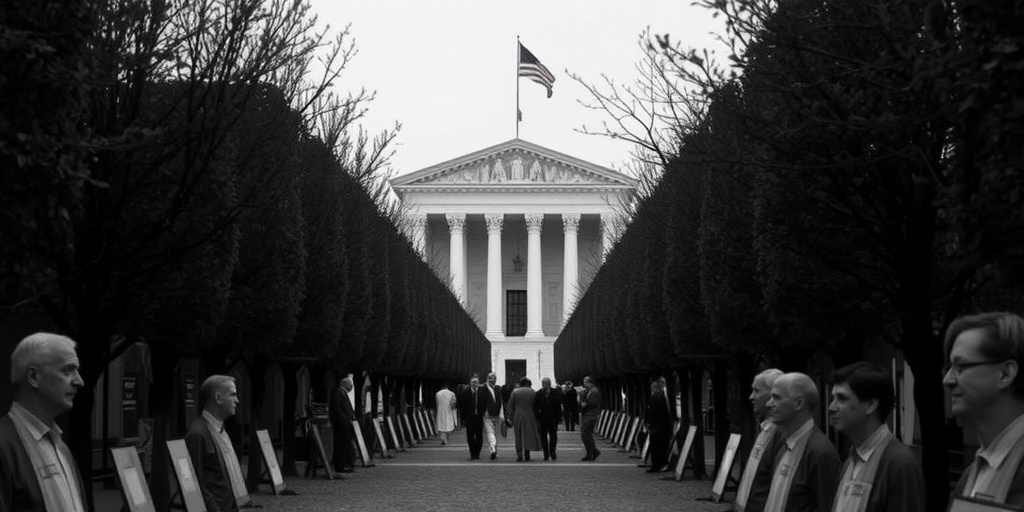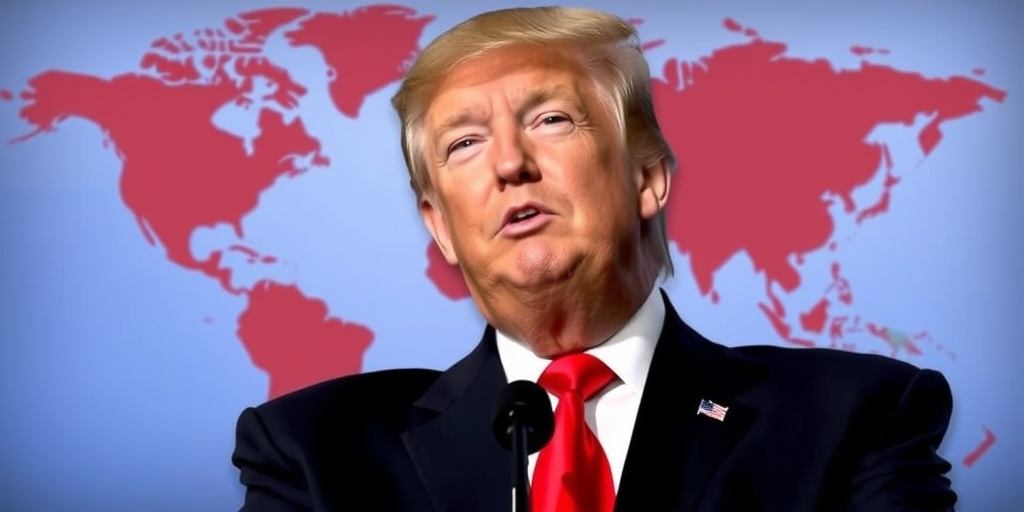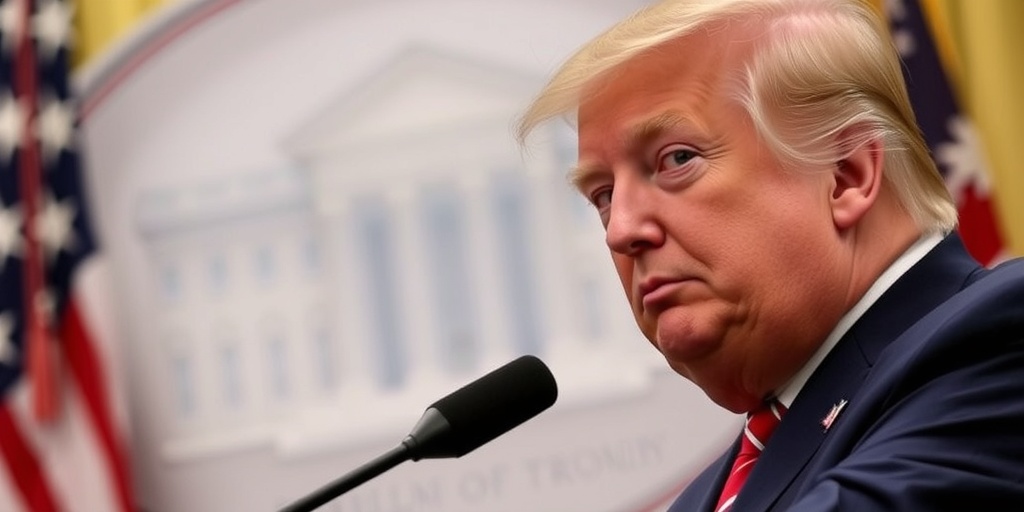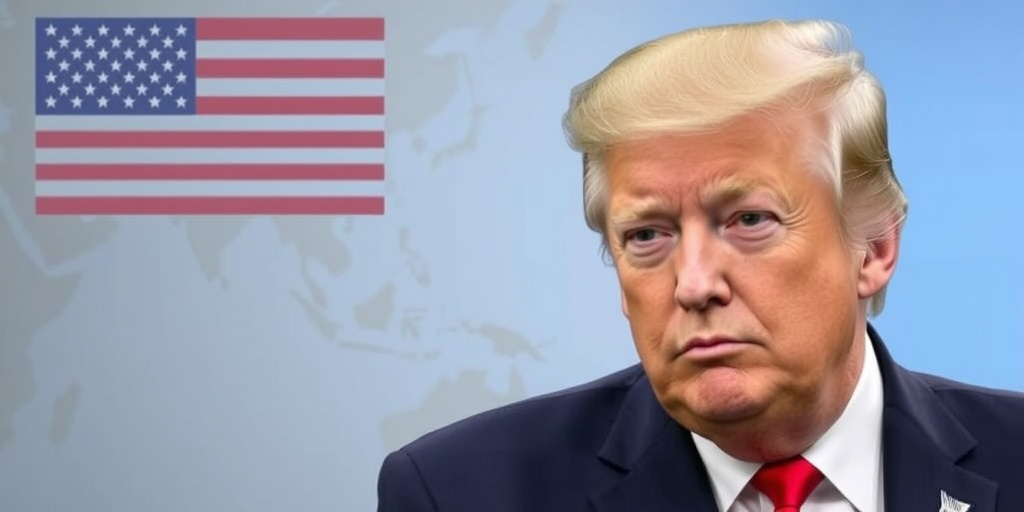Now Reading: Trump Undermines Justice Dept. Legal Office, Weakens Checks on Power
-
01
Trump Undermines Justice Dept. Legal Office, Weakens Checks on Power
Trump Undermines Justice Dept. Legal Office, Weakens Checks on Power
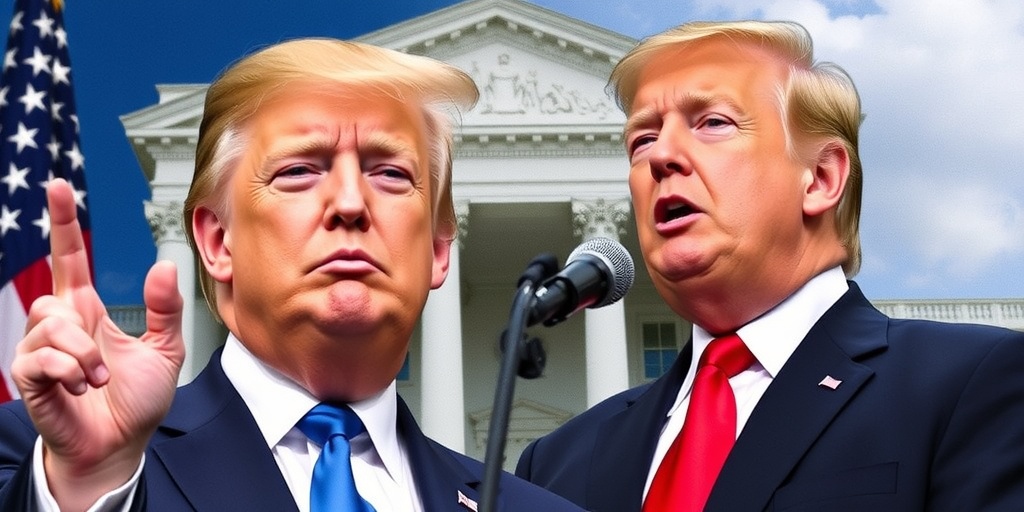
Title: The Erosion of the Office of Legal Counsel Under President Trump
The Office of Legal Counsel (O.L.C.) within the Justice Department has historically played a critical role in the American governmental framework, serving as a vital legal advisor to the executive branch. It has been the arbiter of legal interpretations, determining the limits of federal agency actions, and approving executive orders prior to Presidential signature. However, amidst President Trump’s second term, this essential office appears to have been sidelined, disrupting the checks and balances that enable effective governance.
Under President Trump, the O.L.C. has experienced diminishing influence. The Trump administration has pursued aggressive policies that often venture into legally ambiguous territory, exploiting a broader interpretation of Presidential power. This shift has effectively undermined the O.L.C.’s traditional function as a legal gatekeeper, complicating the Justice Department’s ability to defend governmental actions in the courts.
Jack Goldsmith, a law professor at Harvard University and a former head of the O.L.C. during the George W. Bush administration, pointed out that the Trump administration’s tactical exclusion of the O.L.C. exemplifies a broader strategy designed to empower the President to act unfettered by legal constraints within the executive branch. According to Goldsmith, the sidelining of O.L.C. marks a significant departure from historical practice and threatens the rule of law within the executive.
As of now, President Trump has yet to nominate a Senate-confirmed leader for the O.L.C., and there is no acting assistant attorney general in place. Recently, Trump did express his intention to nominate T. Elliot Gaiser, the Ohio solicitor general, for the vacant position. However, the delay in leadership appointments suggests a lack of commitment to restoring the office’s authority and function.
Traditionally, the O.L.C. would meticulously vet executive orders, engaging in a back-and-forth process to ensure both the legality and form of the drafts were sound before final approval. This system allowed the office to review executive orders thoroughly, issuing memos that signaled legal compliance. However, in the current administration, such rigorous processes have been notably absent. Recent sources indicate that while the White House has reintroduced some level of consultation with the O.L.C. regarding executive orders, this collaboration is far more restricted than in previous administrations. The O.L.C. has reportedly only been provided a cursory opportunity to comment rather than being involved until a draft is finalized for Presidential endorsement.
The shift in the O.L.C.’s role is evident in recent actions and claims made by President Trump that directly contradict the office’s established legal opinions. Controversial topics such as birthright citizenship, asylum rights for migrants, and the authority to defy Congress in budgetary matters have been at the forefront of this tension, showcasing the growing disconnect between White House actions and O.L.C. guidelines.
Critics of executive overreach have often labeled the O.L.C. as too permissive, yet Goldsmith emphasizes its historical role as an important internal check. The traditions established within the O.L.C. allowed it to serve as an independent body, insulated from the immediate political pressures that often cloud the judgment of White House lawyers.
Despite the critiques, the White House press office has remained silent on this issue, with a spokesperson from the Justice Department asserting the O.L.C.’s ongoing engagement with the President’s executive orders. However, insiders contend that a mere "review" does not equate to the thorough approval processes implemented in the past.
A notable concern among legal experts is that the office’s current trajectory is likely to compromise legal standards within Trump’s administration. Recent actions, including executive orders aimed at targeting specific law firms and the lack of due process in deportation orders, have raised alarms over the legal frameworks supporting such decisions. Veteran O.L.C. attorneys expressed skepticism over whether many recent directives could stand under strict legal scrutiny, signaling a troubling trend of decisions seemingly made without appropriate oversight.
Historically, the O.L.C. has been instrumental in assessing the factual and legal premises of proposed executive orders. For instance, Trump’s recent invocation of the Alien Enemies Act for expedited deportation disregarded critical intelligence that contradicted the legality of his rationale. Knowledgable figures in the field have voiced that this apparent absence of O.L.C. scrutiny indicates a significant departure from procedural norms that have guided executive action.
Expanding its reach into traditionally independent agency matters, the Trump administration has further blurred the lines regarding legal compliance concerning the O.L.C. This evolution has raised significant questions about the future’s constitutional boundaries and the separation of powers doctrine.
In summary, the ongoing sidelining of the Office of Legal Counsel in President Trump’s administration reflects a trend of diminished legal oversight that prioritizes expedient executive action over adherence to established legal protocols. As a cornerstone of regulatory integrity, the O.L.C.’s reduced influence raises profound concerns about government accountability and the rule of law in contemporary governance.
Stay Informed With the Latest & Most Important News
Previous Post
Next Post
-
 01New technology breakthrough has everyone talking right now
01New technology breakthrough has everyone talking right now -
 02Unbelievable life hack everyone needs to try today
02Unbelievable life hack everyone needs to try today -
 03Fascinating discovery found buried deep beneath the ocean
03Fascinating discovery found buried deep beneath the ocean -
 04Man invents genius device that solves everyday problems
04Man invents genius device that solves everyday problems -
 05Shocking discovery that changes what we know forever
05Shocking discovery that changes what we know forever -
 06Internet goes wild over celebrity’s unexpected fashion choice
06Internet goes wild over celebrity’s unexpected fashion choice -
 07Rare animal sighting stuns scientists and wildlife lovers
07Rare animal sighting stuns scientists and wildlife lovers













